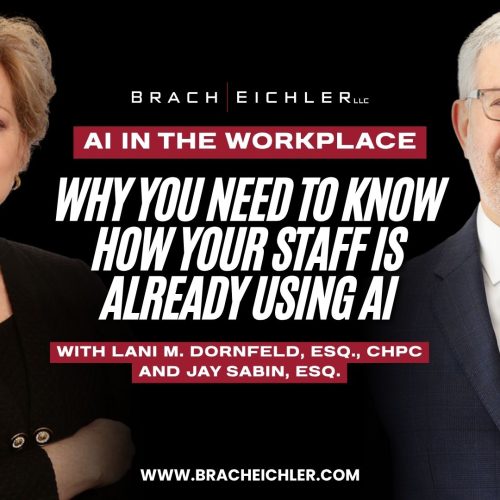Transportation Alert: DIY Motor Carrier Fixes to Supply Chain Problems: Cannabis
The first installment in a series examining things a motor carrier can do to help the supply chain.
12/14/2021
In these times of increased shipping volume and a continued drought of qualified drivers, there are actions a motor carrier can take to help alleviate the crunch. This alert addresses how to keep more drivers behind the wheel safely and legally even though they previously tested positive for cannabis.
The social and legal acceptance of cannabis has changed dramatically over the past decade. Today, cannabis is completely illegal in only four states, fully legal for any adult use in 17 states, and generally available only for medicinal use in 17 other states. Over 49 million Americans used cannabis in 2019 with nearly 20% of all adults age 26 or older having used it, according to a recently published report by the Substance Abuse and Mental Health Services Administration. Cannabis far exceeds any other drug used by drivers who tested positive under Part 382, according to the most recent data from the U.S. Department of Transportation. Yet the FMCSA continues to insist that all FMCSA regulated commercial motor vehicle operators be tested for cannabis and that legal use under state law cannot void an otherwise positive test. And starting in 2020, the FMCSA began to require motor carriers to report positive tests to a national database, the Drug and Alcohol Clearinghouse. One last point: a positive cannabis test does not signify impairment because the chemicals that trigger a positive cannabis test result can stay in the human body for up to 30 days after use.
Based on all this, motor carriers may consider the following:
- Do not ask applicants about prior positive cannabis tests. Limit your background search to querying the Clearinghouse (with the applicant’s consent) and to conducting within 30 days of the driver’s start date the investigation required by FMCSA Regulation 391.23(e). (The latter obligation is eliminated beginning 2023.)
- Do not reject applicants who have previously tested positive for cannabis. FMCSA Regulation only requires that you do not use the driver unless and until the driver has completed the 49 CFR Part 40, Subpart O return-to-duty process. Some state laws, in connection with legalizing cannabis use, also prohibit discrimination against applicants based upon prior cannabis use, and it is unlikely that federal law pre-empts such prohibitions. Rejecting an applicant under these circumstances therefore could constitute illegal discrimination.
- Pay for the Substance Abuse Professional (SAP) evaluation. Because applicants who have not completed the Subpart O process, according to the Clearinghouse, are unemployable as commercial motor vehicle drivers, a motor carrier that restores a driver’s employability will surely garner the driver’s loyalty. A motor carrier may also consider doing this for drivers who have tested positive for drugs other than cannabis.
- Partner with an SAP. A motor carrier who partners with an SAP will likely be able to negotiate a better rate and will speed up the Subpart O evaluation process.
- Modify the discipline for a positive cannabis test result. FMCSA Regulation only requires that the motor carrier not permit the individual to drive until the requirements of Subpart O have been met. Discipline in excess of that may be viewed as illegal discrimination based upon the employee’s cannabis use or, potentially, the employee’s disability. That was essentially the conclusion of the court in Noffsinger v. SSC Niantic Operating Co., LLC, 338 F.Supp.3d 78 (D. Conn. 2018). For motor carriers with unionized workforces, be prepared to bargain over any disciplinary modification unless the union has waived its bargaining rights or the labor contract authorizes the change.
- Limit the rate of random testing for cannabis to that required by the FMCSA. Some motor carriers randomly test over the federally required minimum rate. The current rate is 50%, and the FMCSA just announced that this rate will carry forward into 2022.
- Train your supervisors about the tell-tale signs of cannabis impairment. Some states, like New Jersey, are now requiring employers to have a relationship with professionals trained on cannabis impairment. The existence of such training should also be marketed to the insurers considering underwriting your auto liability insurance.
- Lobby. Contact your state motor carrier association and the ATA to have the FMCSA remove cannabis from the drug testing panel, conduct more research on cannabis impairment, and lower the testing rates for cannabis. The ATA’s recommendations on cannabis legalization may be found here.
For more information contact our Transportation Team led by Jay Sabin at jsabin@bracheichler.com or 917-596-8987.
The information provided on this alert does not, and is not intended to, constitute legal advice; instead, all information, content, and linked materials are for general informational purposes only. Links are only for the convenience of the reader and do not represent an endorsement. No reader should act or refrain from acting based on information on this site without first seeking legal advice from counsel in the relevant jurisdiction. Only your attorney can provide assurances that the information contained herein – and your interpretation of it – is applicable or appropriate to your particular situation. Use of, and access to, this website or any of the links or resources contained within the site do not create an attorney-client relationship between the reader and the firm.












